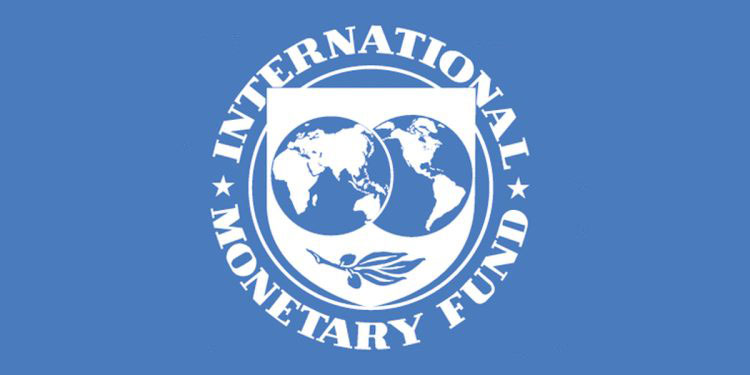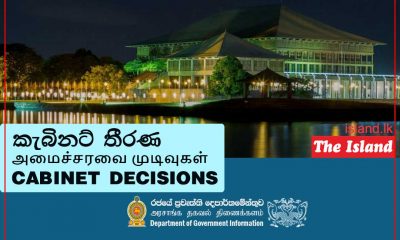News
WB: South Asia needs equitable cooling as heatwaves worsen

*** This spring, temperatures hit nearly 50 degree Celsius across India and Pakistan, while Bangladesh and Sri Lanka sweltered under unusually high heat
Without adequate cooling, these conditions undermine countries’ development. When blistering heat strikes South Asia, the poor and most vulnerable, suffer the worst impacts. When it is too hot to work, wages are lost, pushing families into cycles of poverty. School hours are cut short, depriving children of education and future opportunities, says a World Bank report.
It said: The latest report by the Intergovernmental Panel on Climate Change highlights that climate change is making heatwaves more likely. This spring, temperatures hit nearly 50 degree Celsius across India and Pakistan, while Bangladesh and Sri Lanka sweltered under unusually high heat. A study found that the heatwave across India and Pakistan was 30 times more likely this year than 100 years ago, due to climate change.
At home, where many people in South Asia live in inadequately ventilated buildings without access to cooling, extreme heat harms people’s health. Meanwhile, fragmented cold chain infrastructure leads to the loss of food and vaccines, putting nutrition and public health at risk.
The economic costs are staggering. With a large percentage of the region’s gross domestic product (GDP) reliant on the heat-stressed shoulders of informal workers, extreme heat does not just jeopardise the health and livelihoods of the working poor, but also the economic productivity of the region. By 2030, lost labour due to rising heat and humidity could risk up to 4.5% of India’s GDP – approximately USD 150-250 billion. Pakistan and Bangladesh could suffer losses of up to 5% of their GDP.
As urban populations grow and temperatures rise across South Asia, so too does the demand for cooling. Keeping citizens cool while mitigating the environmental impacts – air conditioners and other cooling equipment release powerful greenhouse gases – is a challenge for governments across South Asia, which must prioritise cooling as a development strategy.
In 2019, India became one of the first countries in the world to launch a comprehensive cooling action plan – the India Cooling Action Plan (ICAP), an ambitious initiative to address the country’s cooling needs while reducing climate impacts. In June 2022, Bangladesh published its own National Cooling Plan, while in October last year Pakistan announced it will adopt one by 2026.
Take South Asia’s cities, for example, many of which are plagued by high levels of poverty and bad housing conditions. More than 200 million new homes need to be built in South Asia before 2050 to meet housing needs. This provides an opportunity to change the course of urban development in the region and adopt strategies that prioritise thermal comfort. India, Pakistan and Bangladesh are responding to this challenge with affordable housing programmes.
In India, where 10 million new homes need to be built annually to keep up with housing demand, the government’s affordable housing scheme has the opportunity to incorporate nature-based solutions and passive cooling techniques – to prevent heat from building up within homes – into construction and urban planning. That means using climate-friendly insulation materials, like straw, combined with materials that have high thermal mass. According to World Bank Group analysis, space cooling in India alone presents a USD 1.5 trillion opportunity by 2040, of which USD 1.25 trillion is earmarked for residential buildings.
Opportunities to scale up affordable space-cooling technologies exist in housing schemes across the region. In Bangladesh, where the urban population grew from 31 million in 2000 to 65 million in 2020, the World Bank estimates that 250,000 new houses need to be built every year to meet existing shortages . In Pakistan, the government launched a housing programme in 2019 to provide five million housing units for poor and middle-income communities by 2030.
Scaling up high-efficiency common household appliances like brushless ceiling, or BLDC, fans can ensure comfort for millions of people. With ceiling fans among the fastest-selling appliances in the Asia-Pacific region, brushless fans require approximately 65% less energy than regular fans and help save around USD 20 per fan each year in household energy bills. This has been done before. India, for instance, has already seen the uptake of transformative energy-efficient technology at scale with nationwide bulk procurement and distribution of LED lightbulbs. Replicating the LED programme to create a viable market for other energy-efficient technologies like brushless fans also creates an opportunity for economic growth in the region.
Latest News
Sun directly overhead Delft, Pooneryn, Elephant pass and Chundikulam at about 12:10 noon today (14th)

On the apparent northward relative motion of the sun, it is going to be directly over the latitudes of Sri Lanka during 05th to 14th of April in this year.
The nearest areas of Sri Lanka over which the sun is overhead today (14th) are Delft, Pooneryn, Elephant pass and Chundikulam at about 12:10 noon.
Business
IMF staff team concludes visit to Sri Lanka

An International Monetary Fund (IMF) team led by Evan Papageorgiou visited Colombo from April 3 to 11, 2025. After constructive discussions in Colombo, Mr. Papageorgiou issued the following statement:
“Sri Lanka’s ambitious reform agenda supported by the IMF Extended Fund Facility (EFF) continues to deliver commendable outcomes. The post-crisis growth rebound of 5 percent in 2024 is impressive. Inflation declined considerably in recent quarters and has fallen to ‑2.6 percent at end-March 2025. Gross official reserves increased to US$6.5 billion at end-March 2025 with sizeable foreign exchange purchases by the central bank. Substantial fiscal reforms have strengthened public finances.
“The recent external shock and evolving developments are creating uncertainty for the Sri Lankan economy, which is still recovering from its own economic crisis. More time is needed to assess the impact of the global shock and how its implications for Sri Lanka can be addressed within the contours of its IMF-supported program.
“The government’s sustained commitment to program objectives is ensuring policy continuity and program implementation remains strong. Going forward, sustaining the reform momentum is critical to safeguard the hard-won gains of the program and put the economy on a path toward lasting macroeconomic stability and higher inclusive growth.
“Against increased global uncertainty, sustained revenue mobilization efforts and prudent budget execution in line with Budget 2025 are critical to preserve the limited fiscal space. Boosting tax compliance, including by reinstating an efficient and timely VAT refund mechanism, will help contribute to revenue gains without resorting to additional tax policy measures. Avoiding new tax exemptions will help reduce fiscal revenue leakages, corruption risks and build much needed fiscal buffers, including for social spending to support Sri Lanka’s most vulnerable. Restoring cost recovery in electricity pricing will help minimize fiscal risks arising from the electricity state-owned enterprise.
“The government has an important responsibility to protect the poor and vulnerable at this uncertain time. It is important to redouble efforts to improve targeting, adequacy, and coverage of social safety nets. Fiscal support needs to be well-targeted, time-bound, and within the existing budget envelope.
“While inflation remains low, continued monitoring is warranted to ensure sustained price stability and support macroeconomic stability. Against ongoing global uncertainty, it remains important to continue rebuilding external buffers through reserves accumulation.
“Discussions are ongoing, and the authorities are encouraged to continue to make progress on restoring cost-recovery electricity pricing, strengthening the tax exemptions framework, and other important structural reforms.
“The IMF team held meetings with His Excellency President and Finance Minister Anura Kumara Dissanayake, Honorable Prime Minister Dr. Harini Amarasuriya ; Honorable Labor Minister and Deputy Minister of Economic Development Prof. Anil Jayantha Fernando, Honorable Deputy Minister of Finance and Planning Dr. Harshana Suriyapperuma, Central Bank of Sri Lanka Governor Dr. P. Nandalal Weerasinghe, Secretary to the Treasury Mr. K M Mahinda Siriwardana, Senior Economic Advisor to the President Duminda Hulangamuwa, and other senior government and CBSL officials. The team also met with parliamentarians, representatives from the private sector, civil society organizations, and development partners.
“We would like to thank the authorities for the excellent collaboration during the mission. Discussions are continuing with the goal of reaching staff-level agreement in the near term to pave the way for the timely completion of the fourth review. We reaffirm our commitment to support Sri Lanka at this uncertain time.”
News
New Year dawns at the auspicious time of 03.21 a.m. tomorrow (14).

The Sinhala and Tamil New Year will dawn at the auspicious time of 03.21 a.m. tomorrow (14th Monday).
The auspicious time to light the hearth and prepare the first meal is at 0404 am on Monday (14) facing South.
The auspicious hour to commence work, perform the first transactions and partaking of the first meal is at 0644 am facing South dressed in white coloured clothes.
-

 Business7 days ago
Business7 days agoColombo Coffee wins coveted management awards
-

 News2 days ago
News2 days agoSuspect injured in police shooting hospitalised
-

 Features3 days ago
Features3 days agoRobbers and Wreckers
-

 Features5 days ago
Features5 days agoSri Lanka’s Foreign Policy amid Geopolitical Transformations: 1990-2024 – Part III
-

 Midweek Review5 days ago
Midweek Review5 days agoInequality is killing the Middle Class
-

 Features7 days ago
Features7 days agoSri Lanka’s Foreign Policy amid Geopolitical Transformations: 1990-2024 – Part I
-

 Business2 days ago
Business2 days agoSanjiv Hulugalle appointed CEO and General Manager of Cinnamon Life at City of Dreams Sri Lanka
-

 Features6 days ago
Features6 days agoA brighter future …























